Monroe County History: Monroe native Ella Foster Auther had success with U.P. resort
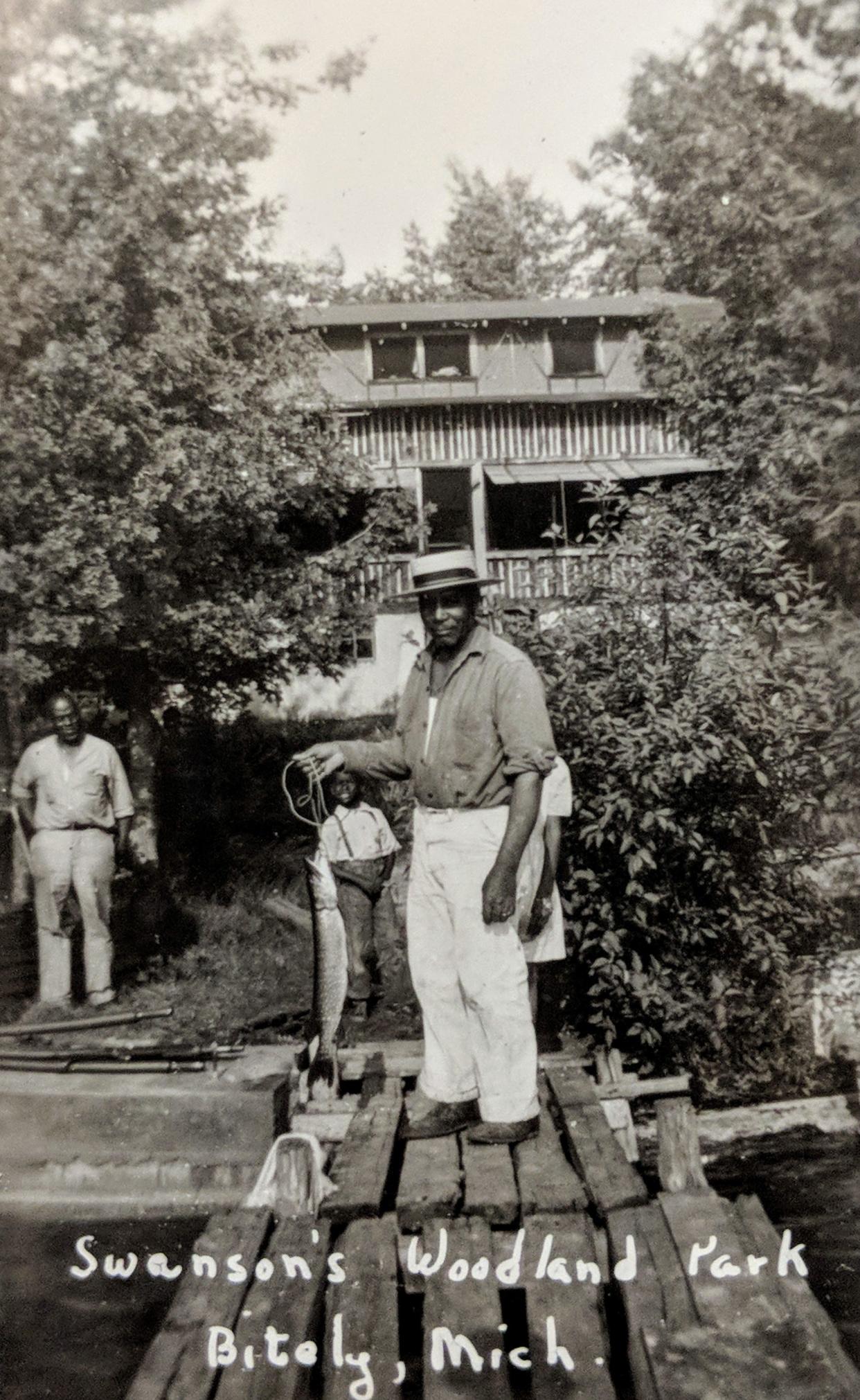
Recently, I wrote about Charles E. Greening and his successful 1920s Bitely Resort in Newaygo County – cabins, golf course and nature preserve. Monroe native Ella Foster Auther also had great success with Woodland Park – a summer resort for African-Americans located near Bitely in Newaygo County’s Merrill Township.
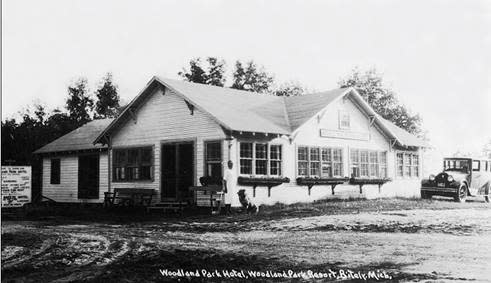
I have written before about the Foster family’s successful Monroe business ventures – a thriving livery business, 23-acre fruit/dairy farm (named the Willow Bend Dairy), and confectionary and candy business (opened in 1899 and located at 9 W. Front St. in Monroe near the Foster’s family home on the corner of East 6th Street and Scott Street and named the “Sugar Bowl”). I also wrote about Auther’s sister – black women’s suffrage leader Myrtle Foster Cook (who was also an early female leader in the Republican Party in the 1920s).
Auther’s business acumen operating the Sugar Bowl and her education in Monroe’s white schools made it possible for her to become a national voice for blacks in the 1920s and 1930s as businessperson and proprietor of Woodland Park.
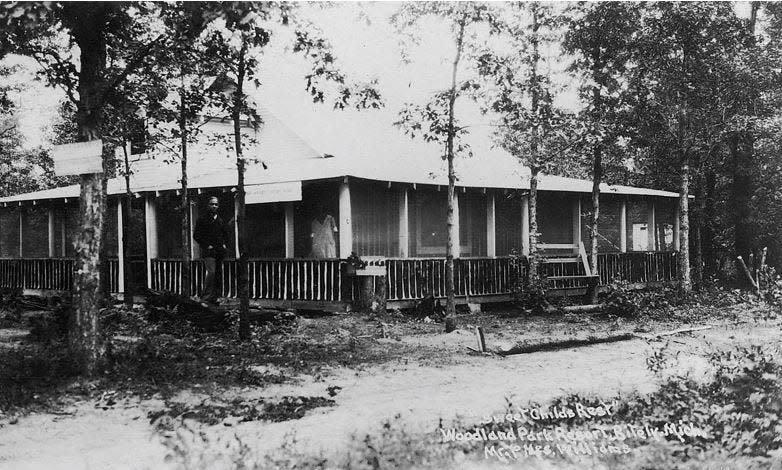
Cincinnati-based author Dianna Cross Toran, who has written two popular books about Woodland Park history – “Woodland Echoes – A Cottage in My Heart” and “Shadows Beyond the Pines: A Story about Woodland Park Michigan, A Black Resort During Segregation” – shared some additional thoughts about Auther’s impact on preserving America’s Black economic and family history. Cross Toran illustrates how Auther’s writings and image preservation filled gaps in black history that had either not been written, visually preserved or were ignored.
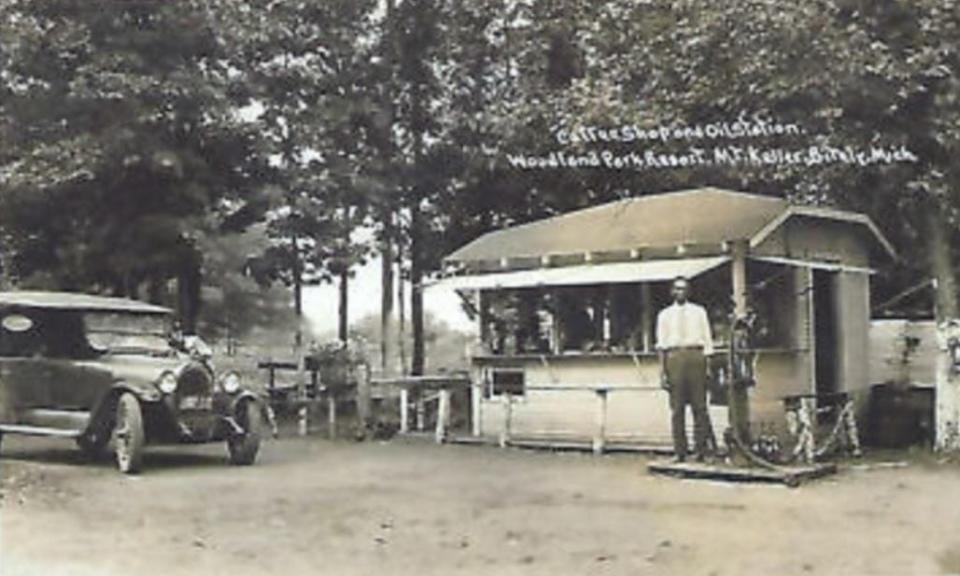
Cross Toran writes, Auther “took photographs of everything in Woodland Park and turned them into postcards. They would be the only proof of what had once been. When I interviewed a lot of the Woodland Park descendants, I got the same answer when I asked for family photos, ‘Our family didn't have a camera back then.’ That was a luxury item. Buying and processing film was expensive. But because Ella came from wealth, she was able to document Woodland Park. Otherwise, none of us would know what had once been there.”
Cross Toran continues: “Only a few places remain at Woodland Park that existed there during her time. I am so glad that she took all these wonderful photographs. We wouldn't have known that a trolly was once our corner store. We wouldn’t have known that a grand clubhouse was on the same spot where my Aunt’s cottage now sits with other cottages.”
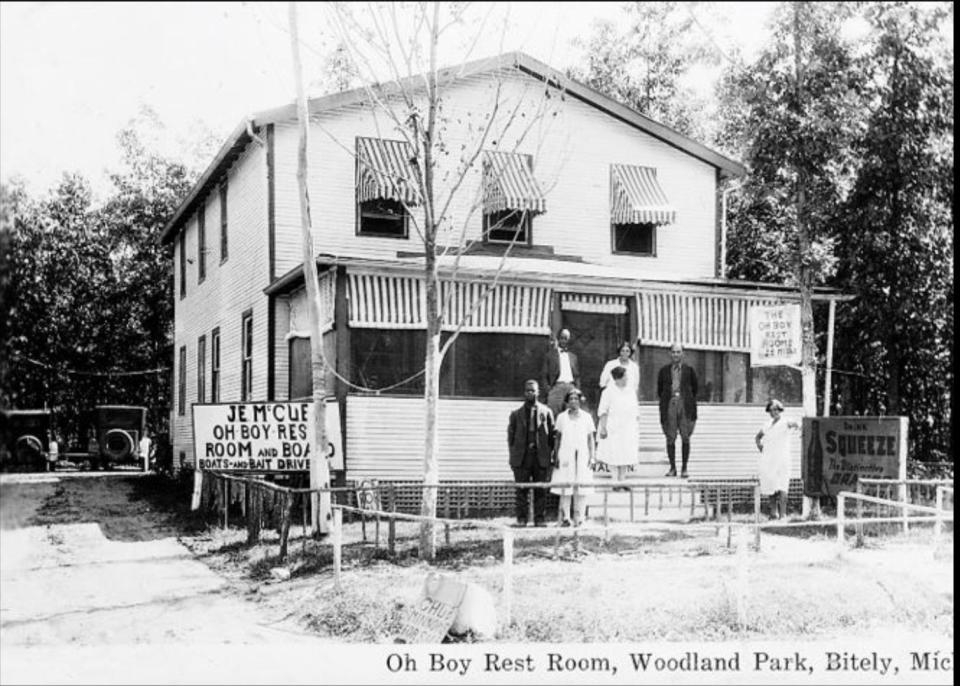
Other important scenes were found in rare archival photos Auther took as well as those from family collections and other sources used in her books. In “Shadows Beyond the Pines,” Cross Toran captures the eclectic mix of people of all races who lived in and visited the Woodland Park community.
Images of black leaders W.E.B. Dubois, John Overton and Hallie Q. Brown are shown at Woodland Park along with white and Native American residents and visitors. Other notable black Americans profiled in Auther's postcard photos are Antoine Prosper Plaut – the inventor of the automotive carburetor (U.S. Patent Number US1204901A) and Bishop Reverdy Ransom (friend of Hallie Q. Brown) – the first black board member on the Ohio Board of Pardon and Parole. There is also a photo of the Johnson Brothers who wrote the Black National Anthem, “Lift Every Voice and Sing,” which was found in Auther’s private photo collection.
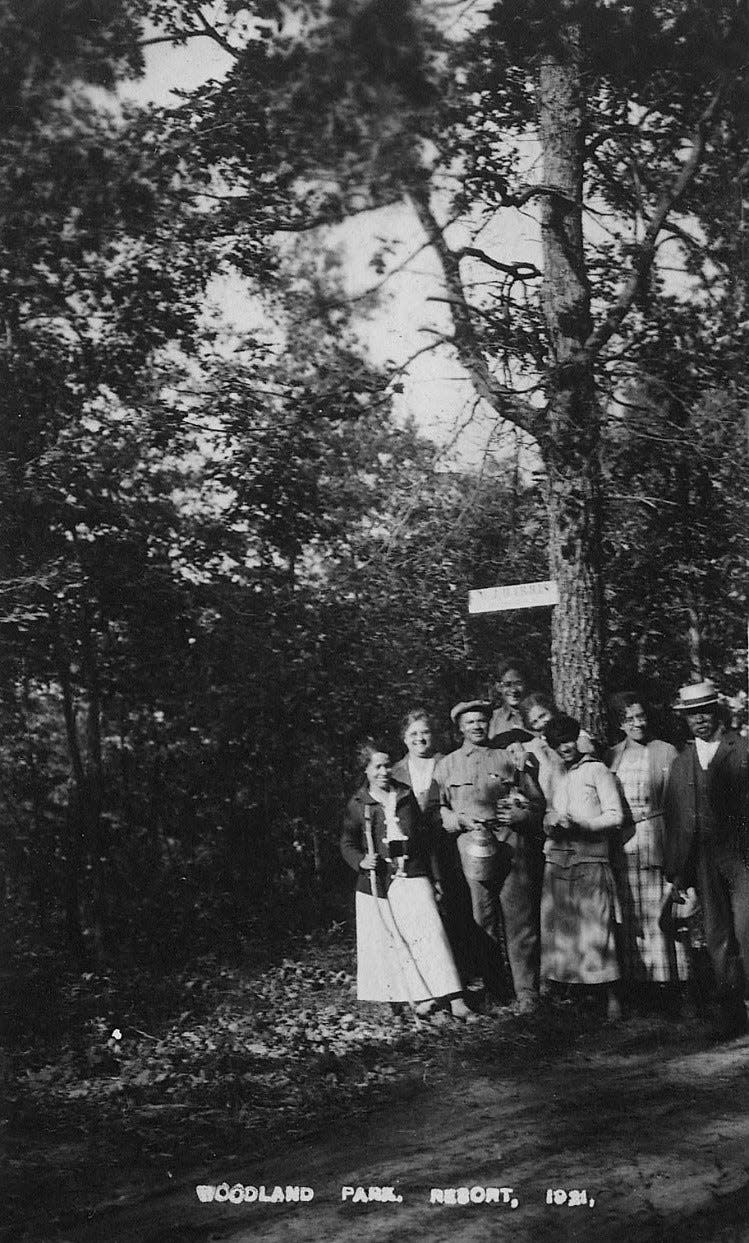
Auther’s enthusiasm and tenacity for preserving Woodland Park history also translated to her writings and pioneering efforts to give America’s black business and family history a wider voice. Cross Toran writes: “Another thing that she did to help us save this history was to write about it. When others were publishing articles about Woodland Park initially, they were very small articles that told very little. These articles appeared in the white newspapers. But when she went to the Chicago Defender and wrote her own articles, they were rich with detail and meaning. Again, it saved that precious history for us.”
Ella Foster Auther died suddenly on Nov. 22, 1941, at age 68. She is buried in Monroe’s Woodland Cemetery.
Tom Adamich is president of Visiting Librarian Service, a firm he has operated since 1993. He also is project archivist for the Greening Nursery Co. and Family Archives and the electric vehicle awareness coordinator at Monroe County Community College.
This article originally appeared on The Monroe News: History: Monroe native Ella Foster Auther had success with U.P. resort

